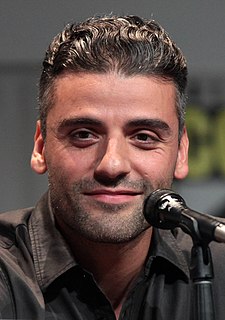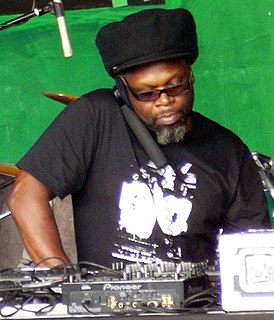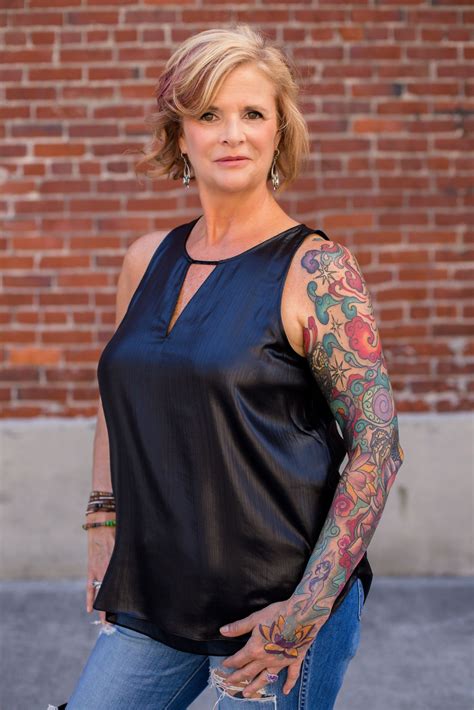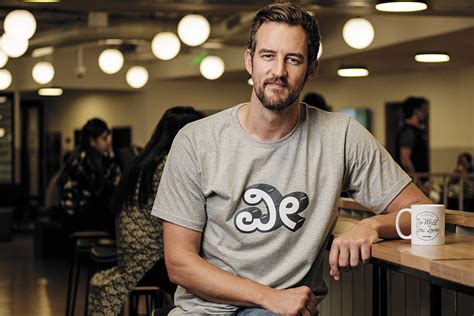A Quote by Debra Granik
We all have to acknowledge the life and the path we were born into. And the things that define us, they're often somewhat narrow: our class, our race, our gender, where we grew up, what geography we were exposed to. The curiosity and wonderment of, "What it's like on your path?" - that's when you go into high alert.
Related Quotes
If I were really asked to define myself, I wouldn’t start with race; I wouldn’t start with blackness; I wouldn’t start with gender; I wouldn’t start with feminism. I would start with stripping down to what fundamentally informs my life, which is that I’m a seeker on the path. I think of feminism, and I think of anti-racist struggles as part of it. But where I stand spiritually is, steadfastly, on a path about love.
When a path opens up before us that leads we know not where, don't be afraid to follow it. Our lives are meant to be mysterious journeys, unfolding one step at a time. Often we follow a path worn smooth by the many and in doing so we lose our authenticity, our individuality, our own unique expression. Do not be afraid to lose your way. Out of chaos, clarity will eventually rise. Out of not knowing, something new and unknown will ultimately come. Do not order things too swiftly. Wait and the miracle will appear.
When were you born, who are your parents, where did you grow up? None of us earns these things. These things were given to us. So when we strip away all of our luck and our privilege, and we consider where we'd be without them, it becomes much easier to see someone who's poor and say, "That could be me." And that's empathy.
All of us must walk the same strait and narrow path, know the same kind of experiences as those we would seek to lead and to serve. There is not one strait and narrow path for the officers-the chosen-and another for the enlisted men. We are all to experience life "according to the flesh"; there is no other way, for it is the way to immortality and eternal life. Given the resplendent riches of the promised kingdom, why would anyone wish to walk another path than the one that leads us back to our gracious and merciful Father in Heaven?
Every time you have a desire, in a certain sense you have a goal, something you would like to be, do, or have. Some desires are merely passing fancies, but others stay with us and go deeper. Our desires and our goals give us direction and focus. They help point us down our path of action in our life.
We, black British, were searching - as the first generation that was born and raised here - for our own identity. We already knew what the Caribbean thing was about. We grew up with the racial tension and unrest. They were either touching your head for good luck or kicking you down the stairs for being too dark. But that was part and parcel of how we grew up in London. But in terms of our identity, it was more about us claiming it y'know?
The question of what we are can only be answered by ourselves. We each decide what we are by the life choices we make. How we were made, who are parents are, where we are from, the color of our skin, who we choose to love, all those things do not define us. Our actions define us, and will keep defining us until even after death.
When a big change occurs in your life it forces you to change direction. Sometimes the new path may not be easy, but you can be absolutely certain that there is magnificence for you on the new path. You can be absolutely certain that the new path contains things that you could not have experienced otherwise.
When we look back at a negative event that occurred in the past, we often see how in fact it transformed our life. We see how that event directed us toward a life that we would not change for anything.
Most of us feel on some level like race horses chomping at the bit, pressing at the gate, hoping and praying for someone to open the door and let us run out. We feel so much pent up energy, so much locked up talent. We know in our hearts that we were born to do great things, and we have a deep-seated dread of wasting our lives. But the only person who can free us is ourselves. Most of us know that. We realize that the locked door is our own fear.
I believe that who we are, and consequently the work that we make, whether we're visual artists or writers or journalists or filmmakers, is a projection of where we were born, what's been withheld or lavished upon us, our color, our sex, our class. And everything we do in life to some degree is a reflection of that context.






































